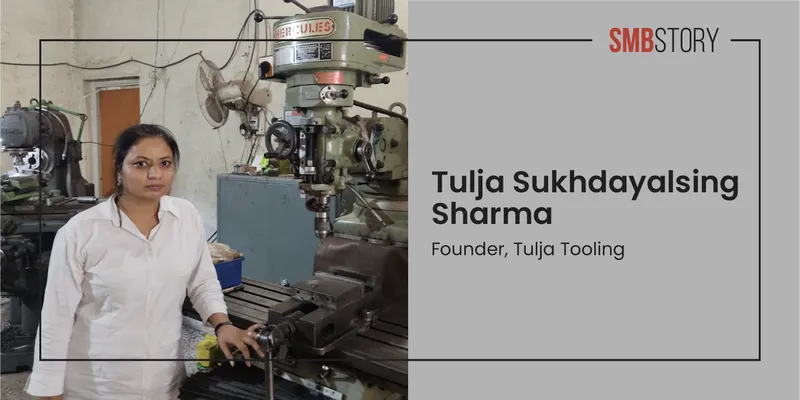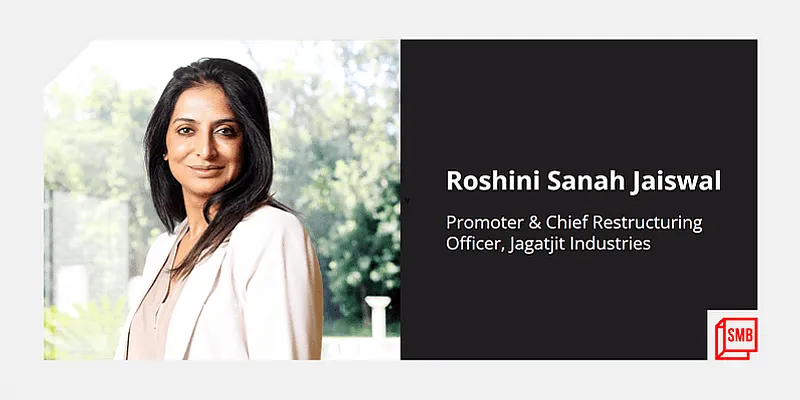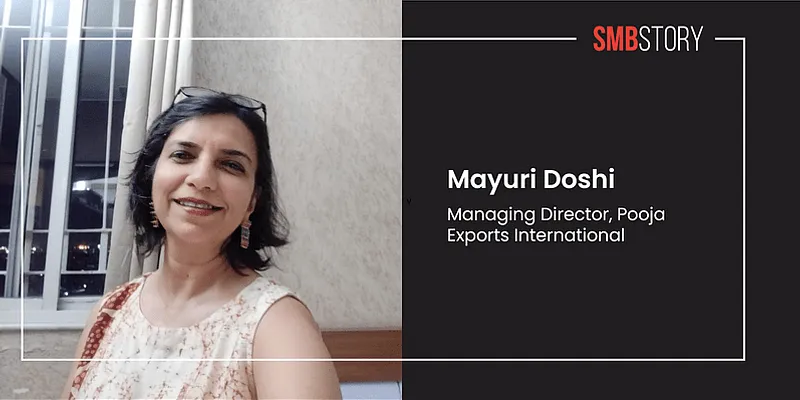[Women’s Day] Meet the entrepreneurs who are shattering the glass ceiling in India’s manufacturing sector
According to studies, only 12 percent of the manufacturing sector's workforce constitutes women. While these numbers may seem dismal, they compel us to take inspiration from women carving a niche in this segment.
In the last few years, more women entered the entrepreneurial ecosystem. However, the manufacturing sector is still in the early stages of adding more women to its workforce.
According to studies, only 12 percent of the manufacturing sector's workforce constitutes women. Besides India, in the US, only one-third of women are involved in manufacturing and core engineering. It is somehow assumed that tools and machinery are for men.
Commemorating International Women’s Day, SMBStory has curated a list of women entrepreneurs shattering the glass ceiling and winning in the manufacturing space.
Mining gold out of Aurangabad

Tulja Sukhdayalsing Sharma aka Rani Tulja has a small machine tools business in Aurangabad under the name of Tulja, started in 2017.
However, her well-laid-out plans went awry due to domestic violence. She lost the business for nearly four years, which she had set up with her own money, to her estranged husband.
Yet, today, she stands tall. Rani restarted her business in 2020 during the pandemic with some money borrowed from her supportive parents and pawning her gold.
She has not only found a firm footing in her area of expertise but has expanded the market of her products to neighbouring Kolhapur, Nagpur, and states like Gujarat and Punjab. Today, she has five machines, including a milling machine, lathe machine, and drill machine, and employs two workers.
Tulja does the design, technical work, and marketing. She made a modest sum of Rs 24 lakh last year.
Tulja’s determination, “Yeh meri zid hai. Main kuch kar ke dikhaungi (I am adamant to succeed) has kept her going.”
For nearly two years now, she has been out on the road, come rain or shine, meeting industrialists and manufacturers to sell her products.
Her immediate goals are to set up a website and start digital marketing to reach more customers and buy a CNC machine to meet the increasing demand for the products.
Eyeing an IPO

Anjana Pasi, Founder and Director, , got a sense in 2012 that the kidswear sector was bound to see remarkable growth. Back then, she, along with her husband, Manish Pasi, had been manufacturing apparel for other brands in the industry. They pivoted and entered the retail space.
In an interaction with SMBStory, Anjana says, “Since 2002, we have been in the business of manufacturing clothes for popular foreign brands like Mothercare, Morrisons, and others. After gaining expertise and being in the business for over a decade, we thought of taking a chance and launching our brand – a complete design-to-dispatch brand.”
She adds, “The majority of the brands are just retailers. They do not understand the term ‘quality’, and this gap is widening in the Indian market.”
To fill this void, Anjana and Manish built MiniKlub using their savings, where they’d control the entire business operation — right from development to product dispatch.
Within a decade after its inception, MiniKlub has grown to be a Rs 107 crore turnover company, Anjana claims. She says, in the next two or three years, the company will target an Initial Public Offering (IPO).
Winning in the healthtech space

Chennai-based aims to make a difference in the medical devices segment. Founded in 2012 by Anu Moturi, Kriya manufactures and sells medical devices in the molecular diagnostics, biochemistry, and diabetes categories.
Recently, its product KRIVIDA Novus — an RT-PCR kit to detect SARS-CoV-2 including RdRp, N-gene, S-gene, endogenous-Internal Control (IC), and an Omicron variant-specific S gene probe — received approval from ICMR and DGCI.
From a time when investors did not respond to her calls because “medical devices were not recognised as a sector” to launching a product making waves amid the COVID-19 pandemic, Anu shares her inspiring journey as a woman entrepreneur.
She tells SMBStory why this sector continues to need the support of several stakeholders.
Come rain, come pandemic

The very trying and testing pandemic years of 2020 and 2021 taught businesses the art of pivoting and persisting. The pandemic resulted in an unexpected turn of events almost overnight and caused deep financial stress within the business ecosystem and every other area of life.
While some founders took the online or ecommerce route, others started producing essential goods to keep businesses running.
One such example is SwanRose, a preventive healthcare vertical started by third-generation entrepreneur, Roshini Sanah Jaiswal. Roshini also leads operations at one of India’s oldest liquor-making companies — Jagatjit Industries — located in Kapurthala, Punjab.
When the COVID-19 pandemic struck, Roshini started thinking of ways to keep the business running. “When I studied epidemics and war scenarios from the past, to keep the factories alive, I learnt that you must become essential to the government in some way,” she says.
According to her, the team at started reading up recommendations rolled out by the World Health Organisation and immediately started manufacturing sanitisers. As a result, the business never stopped. “Our factories were only shut for 10 days in March 2020,” she adds.
However, this seemingly small idea to make sanitisers paved the way for a larger business opportunity, eventually leading to the launch of SwanRose in April 2020.
The company’s sanitisers were first launched in the US and then in India. Roshini claims the sanitisers have also obtained the United States Food and Drug Administration (USFDA) and Drugs Controller General India (DCGI) clearances.
An entrepreneur with a cause

Mayuri Doshi joined her father's Kolkata-headquartered garment export business Dolly Exports in 1986. She wanted to support her father Anant Mody in running the business.
She recalls how she would visit her father’s office every day after college to offer her help, but he was not convinced. So, Mayuri spent a year learning the business and the ecosystem to prove she was serious.
Dolly Exports sourced woven fabrics from Bhagalpur and exported them to countries like the US, Japan, and New Zealand, among others. However, the business had to shut down in 1992 due to a union issue. But it was not the end of the road.
Next year, the duo launched a similar business, but this time as , which supplied fabrics such as tasar and silk from Bhagalpur to markets like Spain, Japan, the US, Germany, and more.
In 2015, Pooja Exports hit a roadblock with several factors contributing to a reduction in business. For instance, buyers wanted garments azo-free dyed, a facility not easily available. In addition, Mayuri says buyers did not understand the irregularities that came with handwoven garments.
“Even a millimetre of difference in the stitching was not acceptable to them,” she says.
All these factors led to the business coming down. But Mayuri managed Pooja Exports to get its mojo back. Today, she has not just built the business again but is also making an impact in society by employing women from Kolkata’s correctional homes.
Edited by Suman Singh


![[Women’s Day] Meet the entrepreneurs who are shattering the glass ceiling in India’s manufacturing sector](https://images.yourstory.com/cs/21/e1da3a20368f11ea8ceed32dbcb77ccc/Imagetfkz-1646666675902.jpg?mode=crop&crop=faces&ar=2%3A1&format=auto&w=1920&q=75)








